P.A. Wilson's Blog, page 22
November 13, 2012
Best Book lists, do they have your favorites?
 I saw this over at EW.com and it made me wonder if these top ten book lists are representative of people’s tastes. Amazon picks its 10 best books of 2012.
I saw this over at EW.com and it made me wonder if these top ten book lists are representative of people’s tastes. Amazon picks its 10 best books of 2012.
The article starts with this statement
Pretty much all of the big, important books of the year are already released or soon-to-be-released by now, so it’s not too soon for “Best of 2012″ lists to start rolling in. Amazon has made its choices — some bold, some expected — for its top 100 books of the year. Here is the top 10 — decide for yourself whether Amazon’s picks will make your holiday list. We’ll be coming out with our own list soon, so stay tuned!
Read the rest here
Here’s the thing
I haven’t read any of them, which seems weird. If they are the top ten books, shouldn’t I have read at least one?
What about you? Have you read any of these books? If you have, are they the best of the year? Should I be reading them?
1. The Round House by Louise Erdrich
2. The Yellow Birds by Kevin Powers
3. Gone Girl by Gillian Flynn
4. The End of Your Life Book Club by Will Schwalbe
5. Billy Lynn’s Long Halftime Walk by Ben Fountain
6. Behind the Beautiful Forevers: Life, Death, and Hope in a Mumbai Undercity by Katherine Boo
7. A Hologram for the King by Dave Eggers
8. The Middlesteins by Jami Attenberg
9. Mortality by Christopher Hitchens
10. The Fault in Our Stars by John Green
November 10, 2012
When you have to read a book you don’t want to read
I used to think this was only needed for text books, but I’m finding more and more that I need to do this with fiction. Not that I think reading fiction you don’t want to read is a good idea, but sometimes that book is something you have to read even though it’s a struggle.
Do you have any tips?
This might be a challenge more targeted for book reviewers, but most of us have gone through some reading challenges in school. Are there tips you have to help someone get through?
November 7, 2012
Criticism: when do you listen?
Criticism is interesting it can make us capable of great things by showing the possibilities, or it can limit our lives. I came across this article on BookPage about yet another person who was told they had no talent and it made me wonder how that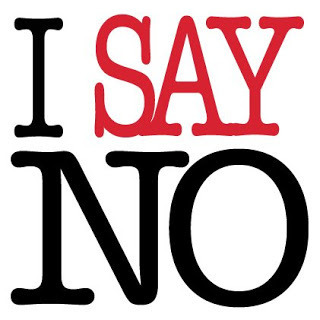 feedback can shape your life. I’ve talked about reviewing in this post, but here we are talking about judgement – someone judging you to be something less than you are.
feedback can shape your life. I’ve talked about reviewing in this post, but here we are talking about judgement – someone judging you to be something less than you are.
The ‘I’ll show you’ approach
I’m a bit of an contrarian. If someone tells me I can’t do something, I immediately look for a way to do it and do it well.
So if I had been told I didn’t have talent the way P.I. McCone was, I would have done exactly the same thing. Keep improving and finding a way to learn that talent.
The ‘I’ll ignore you’ approach
For some people, actually I think in some circumstances everyone can do this, you know you can do something. You know the person telling you that you aren’t good enough is wrong. So you just keep going.
The ‘you are so right, I’ll stop’ approach
I’ll admit that not everyone who advises you that you can’t do something is going to be wrong. Sometimes they are right and listening is going to save you a lot of heartache. How do you know when this is the case? Well, I’ll turn that question to you, reader. Is there some advice you were given in the past that rang true? How did you handle it?
November 4, 2012
When you have passion can you find energy?
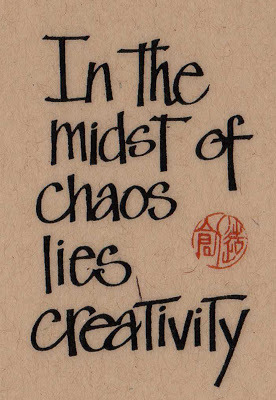 My friend Jonanne posted over at The Rules of Engagement talked about how travel can drain your energy for writing – or any other creative endeavor – and gave some ideas about how to redefine writing.
My friend Jonanne posted over at The Rules of Engagement talked about how travel can drain your energy for writing – or any other creative endeavor – and gave some ideas about how to redefine writing.
She quoted me about my 10 hour commute and some discussions we’d had at our writing meet up The Vancouver Independent Writer Group. It got me thinking, now that I’m off The Highway Thru Hell until spring can I do something that will help when I’m back on the road?
I can usually find the energy to write because I love doing it, but there are limits.
The components of creativity
In my post about characters, I talk about how they are built with contrasts. When I reflect on that I makes me think about how I define too tired to write and how creativity works.
For me, and I assume for others, creativity starts with something much earlier than words on a page. It starts with an idea and progresses through a plan then through to writing lots of lovely words that turn in to a book.
It’s like a closet
Stick with me, it’s not so much of a stretch. The idea is like developing the closet organization design phase. Then the plan – plot – is the empty closet organizer. It’s racks and shelves and poles that will hold an amazing number of clothes and shoes.
The actual writing is the shoes and clothes. The actual writing is what I need the most energy for.
My plan
Let’s pretend I won’t forget it by next spring when I’m ready to take on the Highway Thru Hell with my Camry hybrid and all season tires (FYI if hell is really like the Coquihalla then we have nothing to worry about).
I can design the closet and install the organizer because that can be done in little bites of energy. How I do it now, is set up for failure, just facing a page that needs to be filled with words takes energy, so I don’t even try.
How do you manage to find the energy to do what you love?
Do you have a passion? One that has to be fit into the cracks in your day? How do you do it?
November 1, 2012
Free books, are they a good deal?
Most of my posts for November are going to be short – I’m participating in NaNoWriMo and need to spend most of my time writing new material.
Today, let’s talk about free books. One of the reasons to go electronic for your reading is free books. These freebies are an ea sy way to test out a new author.
sy way to test out a new author.
Where to find free books
There are a few sites I follow on Facebook that promote free ebooks. These books are often but not always indie authors.
If you follow them on Facebook, you’ll find posting in your stream about free books at least three times a day.
Is it worth the time to download?
I’d say there are three categories; I couldn’t get past the first few pages, I read it but it wasn’t great, or I loved it and bought more from that author. About a third go into the first bucket and then about 50% into the second one.
I’ve found about six new authors that I love and will continue to buy their work as it comes out.
The time to download? Well, it’s only a few clicks so how can it not be worth it?
I recommend giving it a try, you really have nothing to lose.
October 29, 2012
Helping others – cash, time or other
This is a little different from my usual post because I’m getting into the end of year assessment s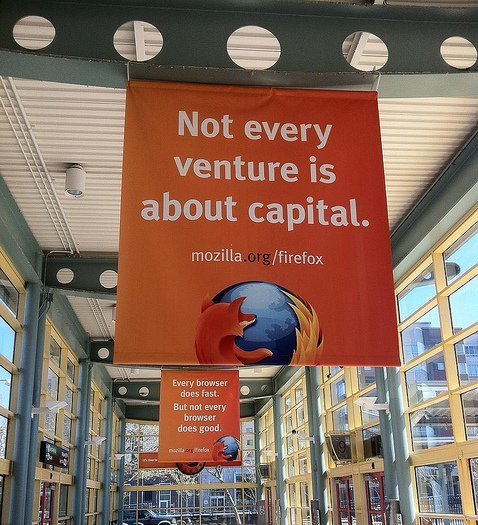 tate of mind. That means, for me, asking if I am happy with how I help others.
tate of mind. That means, for me, asking if I am happy with how I help others.
The give a fish v teach to fish issue
The saying as I understand it is ‘it is better to teach a man to fish than feed him a fish’. I support that idea, but if the man is too hungry to hold the fishing pole, all the teaching in the world won’t help.
I don’t have a lot of time to volunteer, and I don’t have the emotional fortitude to handle the heartbreak of poverty. I also believe that I need to help my own community and the global community because desperate poverty is something that makes our world less than it could be.
My approach – feeding the fish
I give to the local food bank because I hate the thought that my neighbor can’t afford food. I also give to Covenant House because children shouldn’t be trapped on the street. What’s unusual for me, is to support a religious charity – which Covenant House is – because I don’t think a helping hand should come at the cost of your beliefs – which at Covenant House it isn’t.
My approach – teaching to fish
I’ve also started supporting Kiva because I see this as a helping hand for people who are already on the path to self sufficiency. And it fulfills my need to help outside my community.
So why is this important to you, reader?
I’m always reviewing what I do in helping others, so I was wondering what else is out there – how else I can help. I’ve been thinking about raising money through my book sales, giving a portion away – or even bequeathing my rights in my will.
So, reader, if you want to share your favorite charity or activity that helps people, here’s a forum. Let us know who to support.
October 26, 2012
Who decides on DRM for ebooks?
 DRM is a difficult subject to get your arms around. People use it to cover everything from the format of the ebook, to geographic restrictions. There’s an article over at Teleread that inspired this post.
DRM is a difficult subject to get your arms around. People use it to cover everything from the format of the ebook, to geographic restrictions. There’s an article over at Teleread that inspired this post.
My opinion on DRM is that it should go away, that includes the different formats and the geographic restrictions. The thing is that pointing the finger at retailers for restrictions they don’t apply is not going to help.
What the retailer chooses
Let’s be clear the goal of the retailer is to sell as much of their product as they can. Any restrictions are going to get in the way of that goal. Retailers are responsible for the available formats. This is proprietary formatting and each retailer gets around their own barrier by providing apps. You don’t need a Kindle to read a Kindle book; nor do you need a Kobo, or a Sony reader or a iDevice.
The challenge of format comes when you do have a Kindle, Kobo, Nook, Sony reader. You can’t read .mobi (Kindle format) on a Kobo. Now, I understand the other ereaders all do Epub and that Amazon is the holdout for proprietary formatting. As long as they hold the vast majority of the market share of ebook sales, I don’t see them changing and if there is no DRM, you should be able to convert your .mobi to epub with free software like Calibre. There’s no reason for Amazon to change their format to epub, there may be a reason in the future, but there isn’t one right now.
But, I can’t convert my books to epub, so Amazon must have to change what they do
Here we are at the other side of the equation. Amazon doesn’t apply DRM that restricts your ability to convert formats. They also don’t require it, in fact they encourage no DRM by defaulting the choice to none when you upload.
The publisher decides on the DRM – whether they are a big 6 or a self publisher, they choose whether they tick the box or not.
There are some reasons why a publisher would apply DRM, one is that they don’t have the rights to sell a book in certain geographic areas. I can’t think what other reason there might be, they make money on selling books, why would they want to put barriers to the purchase?
What can you do about it?
I think we know that eventually the discussion will make a difference, but the consumer has one power in this game; to purchase or not to purchase. With books it’s not that easy to substitute one purchase for another. While I would love to think otherwise, I don’t think someone would buy my DRM free books instead of a Janet Evanovich book which comes with DRM – including a limit on how many devices you can read it on. Although, please feel free to do so.
You also have the power of your voice. You can let the author and publisher know – politely so they can listen – what you feel about DRM.
And just what do you feel about it? Do you care? Have you noticed that the more expensive the book, the more DRM is applied? Would you prefer to see a two tier pricing with DRM free coming in at a few dollars more than a DRM heavy?
October 23, 2012
If you ruled the world, what would happen?
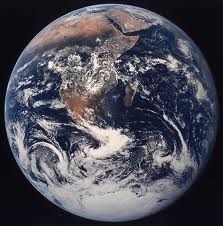 One of the things about being a writer I love is that I get to create worlds. I’m sure everyone thinks once in a while, “I wouldn’t let people do that if I ruled the world.” So I thought a post about building your own world as a stress reliever might be interesting.
One of the things about being a writer I love is that I get to create worlds. I’m sure everyone thinks once in a while, “I wouldn’t let people do that if I ruled the world.” So I thought a post about building your own world as a stress reliever might be interesting.
Situation – the US election ads
Whether or not you are a voter, if you watch American TV and get their ads, you might be getting tired of all the rhetoric. It can be quite stressful to hear all the horrible things that people are saying about their opponents. It’s all as hateful and biased as it can get right now.
I listen to the mudslinging (okay it’s worse than mud, but I don’t want to add an explicit rating) and I think ‘If I ruled the world, that wouldn’t be acceptable.”
Build a world to stress relieve
Is there something you hate in the world? It doesn’t have to be big, it can be a minor irritant. What if you did rule the world?
Write a paragraph about what the world doesn’t contain. In fact, do bullet points if you find a paragraph too much trouble. Dump all the things that annoy you on the list – maybe stopping at 200 items would be okay.
Now, pick 10 things and decide how you would make it work – keep it out of your world. Here’s the current top 3 of my list.
Step one the list:
Political lying to get elected.
Bullying
Cancelling TV shows I like
Step two the process:
If the politician said something clearly untrue, they would lose the right to run for a political position. They can make promises that might not come to being but they can’t lie. The outcome would be something along the lines of – If a politician states that a woman’s body has a way to stop the pregnancy if it’s a real rape – he would have to believe it is true which means he’ll lose the votes (I hope).
If someone is bullying they get reprogrammed – yes I know that’s not viable, or useful, but clearly bullies are missing something in their makeup that needs to be fixed.
Hey! cancel a show I like and you die!!! Okay perhaps an over reaction, but it’s an imaginary world and it’s about stress relief.
Give it a try, you might like it.
Real world building for writers
If you are doing it for stress relief, you can stop there. If you are doing it to write a story, you need to take the next step, what are the impacts?
If I wanted to write a story about bullying, and in my world the bullies got reprogrammed, I have to answer the question, what is the story?. Is it that someone is able to use the reprogramming to bully people? Is it that the bullies have to repress their tendencies and because they don’t get dealt with at the bully stage, they grow up to be serial killers? Is it problem because some level of bullying is good for us as humans because it strengthens our resolve? Does it leave us open to attack from aliens because we never learned to deal with bullies?
I’ve done this exercise here and there since I first created a list of ‘people I would keep in the world if I was King’ (yes I’m a woman, but Queen is really only a female version of King so I wanted to be King).
What’s your list?
October 20, 2012
Characters are built out of contrasts
When developing characters, authors look for contrasts. The protagonist and antagonist must have opposing goals. And both need to be as ‘real’ as possible. That means your hero must have flaws, and I believe they must also have a dark side.

Noir fiction is a great example of heroes with dark sides.
The hero in noir fiction is broken. He is cynical and often a drunkard, and often corrupt. Even so, he’s the only good man in the world of the book. Far from making the hero likeable, the noir writer makes the hero understandable. We know why the hero is so hard. We know he has to dip into the sewer of humanity to do the right thing. A purely good man would never survive the world of the noir.
A more recent example
Lisbeth Salander from The Dragon Tattoo series contains both good and evil within her. She was capable of horrible violence, but only in extreme circumstances. She would investigate her cases to the bitter end to get justice or truth for the client. She is violated horribly by the system set to protect her, but she can still find a way to exist within this brutal world.
In graphic novels
Ironman is complicated. He’s arrogant and snarky and rich and greedy. He’s smart and dedicated to destroying evil.
The Hulk is less complex, but just as complicated. As Bruce Banner, he’s contained and quiet and intellectual. As The Hulk, he’s rage personified, but it’s rage directed. He doesn’t just rampage he fights evil.
Thor, however, is only half a person. He may be strong but he’s not bright, he needs Loki to make him a person.
In my next book….
I’m working on the main character now. A woman who has closed off all her emotions because of a horrific event in her past – no spoilers. What makes her interesting, to me at least, is that she’s talented, she’s intelligent and she’s capable of kindness.
My challenge is to help the reader connect with her at the beginning of the story by making her complex. To show you the possibility of her learning to feel emotions without a promise that all will be well in the end. I’m not sure right now if all will be well in the end, after all.
To do this I look at other characters for tips. I want her to be a little like a noir hero, cynical and damaged, and a little like Lisbeth, determined and focused. And a lot like herself.
Are there heroes you like who are complex? Who do you find interesting an a book or movie?
October 17, 2012
Characters with contradictions
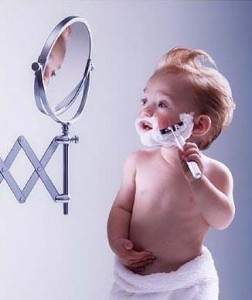 I like to read a lot of transformation stories. Romance, coming of age, quests, all kinds of stories have characters that need to change so that they can be successful. I’ve been trying to work out why some of them crawl into my heart and make me love them despite their flaws, and some of them just annoy me.
I like to read a lot of transformation stories. Romance, coming of age, quests, all kinds of stories have characters that need to change so that they can be successful. I’ve been trying to work out why some of them crawl into my heart and make me love them despite their flaws, and some of them just annoy me.
A typical example
Like out little guy in the picture, our character often has a view of who they are that is contrary to how they behave. I like the example of women in fiction who have to learn of one of two lessons. They need to change in order to get what/who they want. Or they need to realize they don’t have to change, just accept who they are.
It’s a source of conflict in many romances. The woman has to learn how to let go of the past and trust someone so they can love. Or, in other words, drop the baggage and pick up the guy.
How it works well
This is really tricky because at the beginning the character must be flawed to the extreme that something needs to change. In a lot of Lani Diane Rich’s books, characters need to heal some relationship with a parent in order to have a healthy relationship with someone else. Lani, gets us to understand how the relationship was broken and how the heroine isn’t aware that people can change enough to earn forgiveness for even the most horrible acts.
And then she has the heroine be blind to the impact of holding in the resentment. We get to like the heroine and then take her side against the offending parent – and then forgive or not along with her.
I recommend reading A little Ray of Sunshine for a great example. If you want more of Lani, she runs a great writing site and podcast with her husband over at Storywonk.com
How it works poorly
For me, the heroine needs to change at least a little bit early on. If there is no learning, there’s no interest. I find the Shopaholic stories fall into this category. Fairly shallow heroine, who can’t seem to grow beyond behavior.
Eat Pray Love was another example of the contradictions not working. I managed to read the book until she got to the Pray section and when she started crying and feeling sorry for herself AGAIN, I deleted the book. We were a third of the way through the story and she hadn’t learned anything. Argh!
One that makes me switch opinions
I’m reading Stephanie Bond’s Body Mover series and I find myself getting annoyed with the main character. For example, she’s in dire financial straits and she takes a taxi somewhere. She can’t pay her bills, but she can afford to drink martinis and smoke cigars. But just as I’m about to yell at her, she realizes what she’s doing and tries to get control. In each book Carlotta learns something more about herself.
My new novel
The main reason I’m blogging about this is that I’m writing a new book that has an underlying transformation story. I need my character to go from emotionally damaged and unreachable, to a point where she at least realizes that she needs to drop her baggage to be able to live a decent life.
I worry that my readers will lose patience with someone so closed off from her own feelings as they read the story.
So, readers, the question for today – what are the things that make you want to throw your book across the room because the character is not learning?




